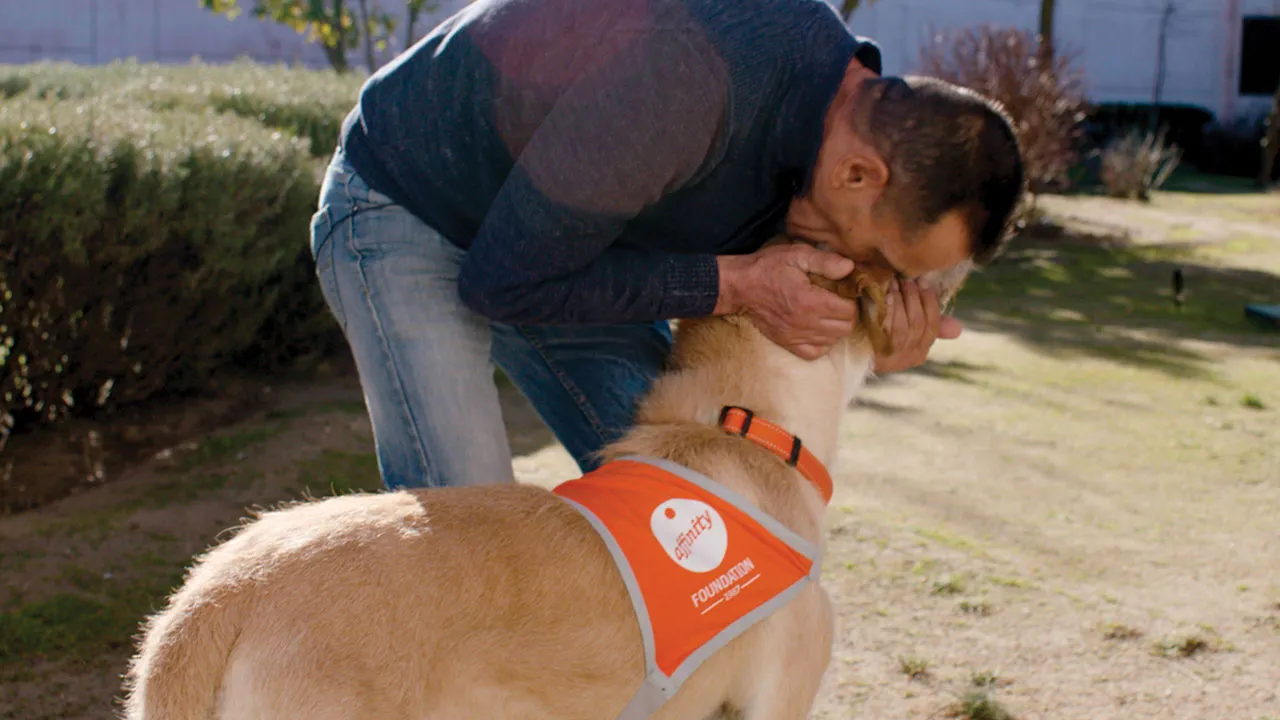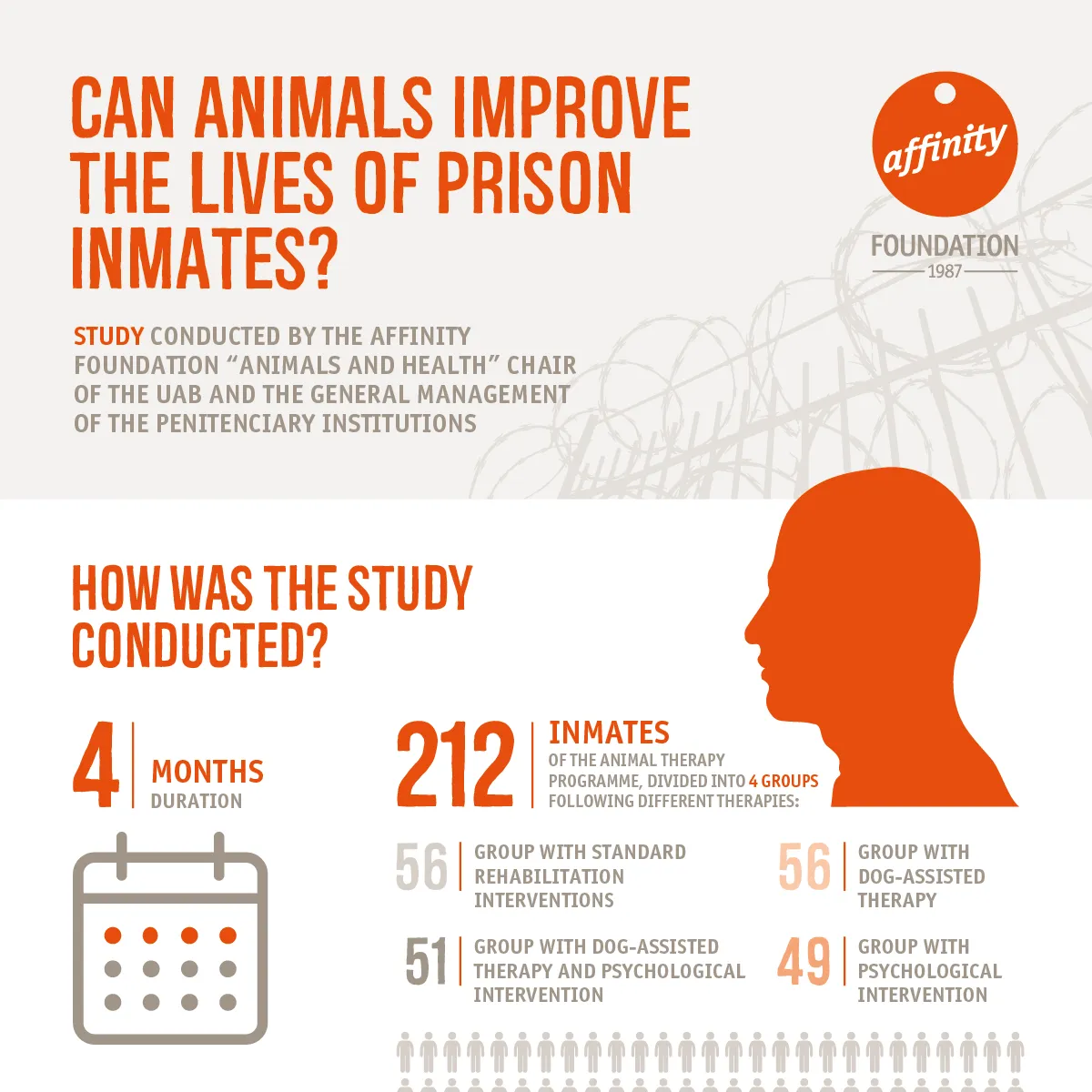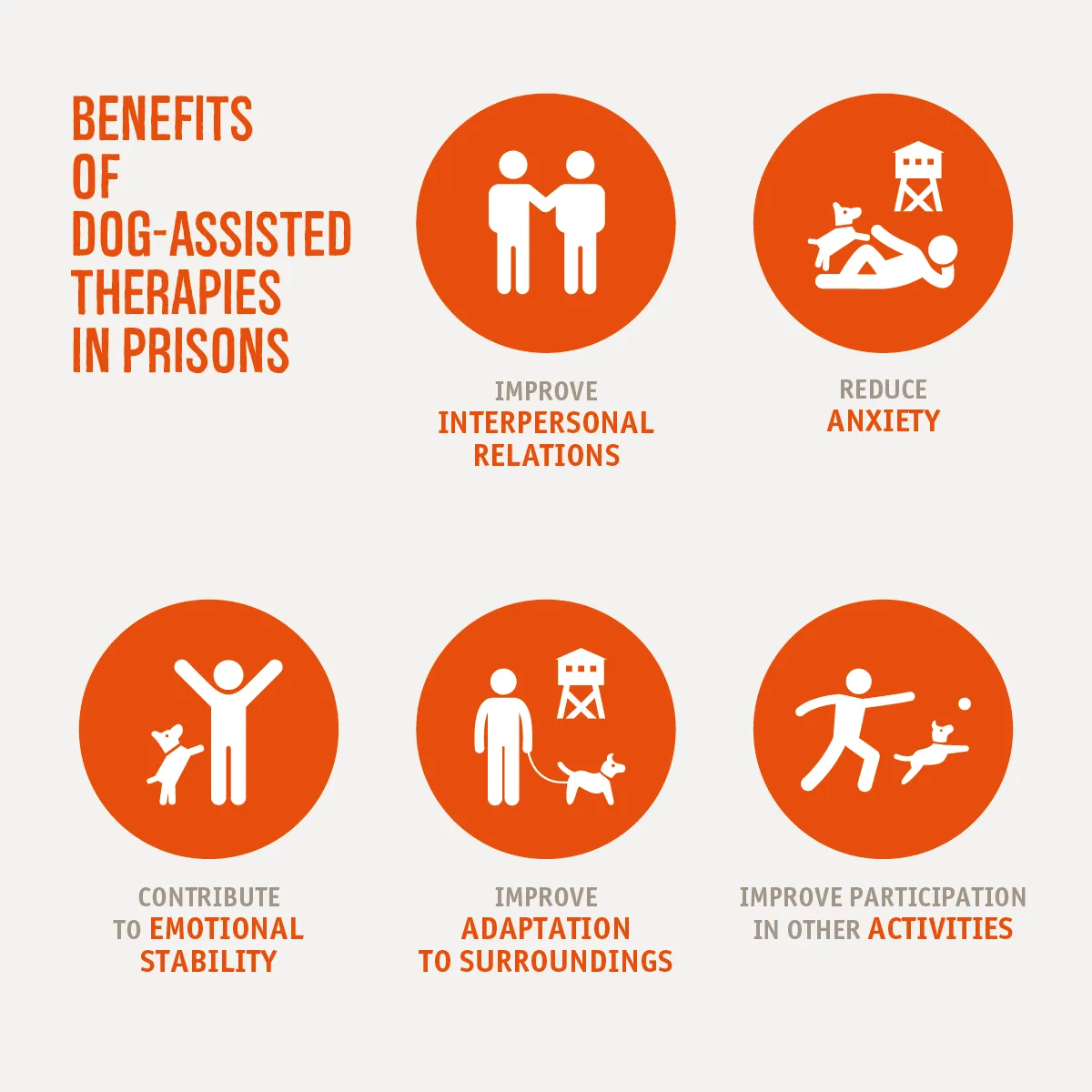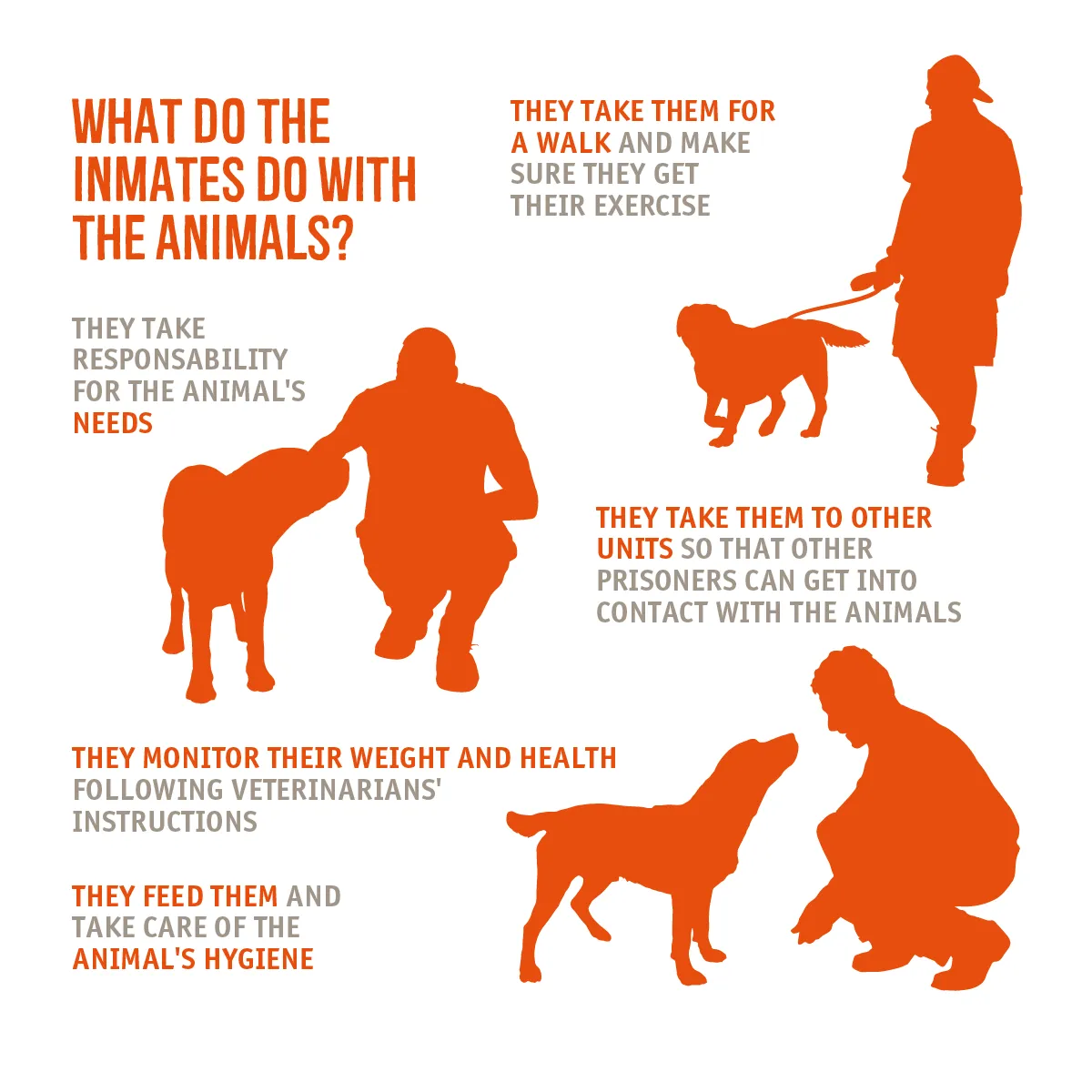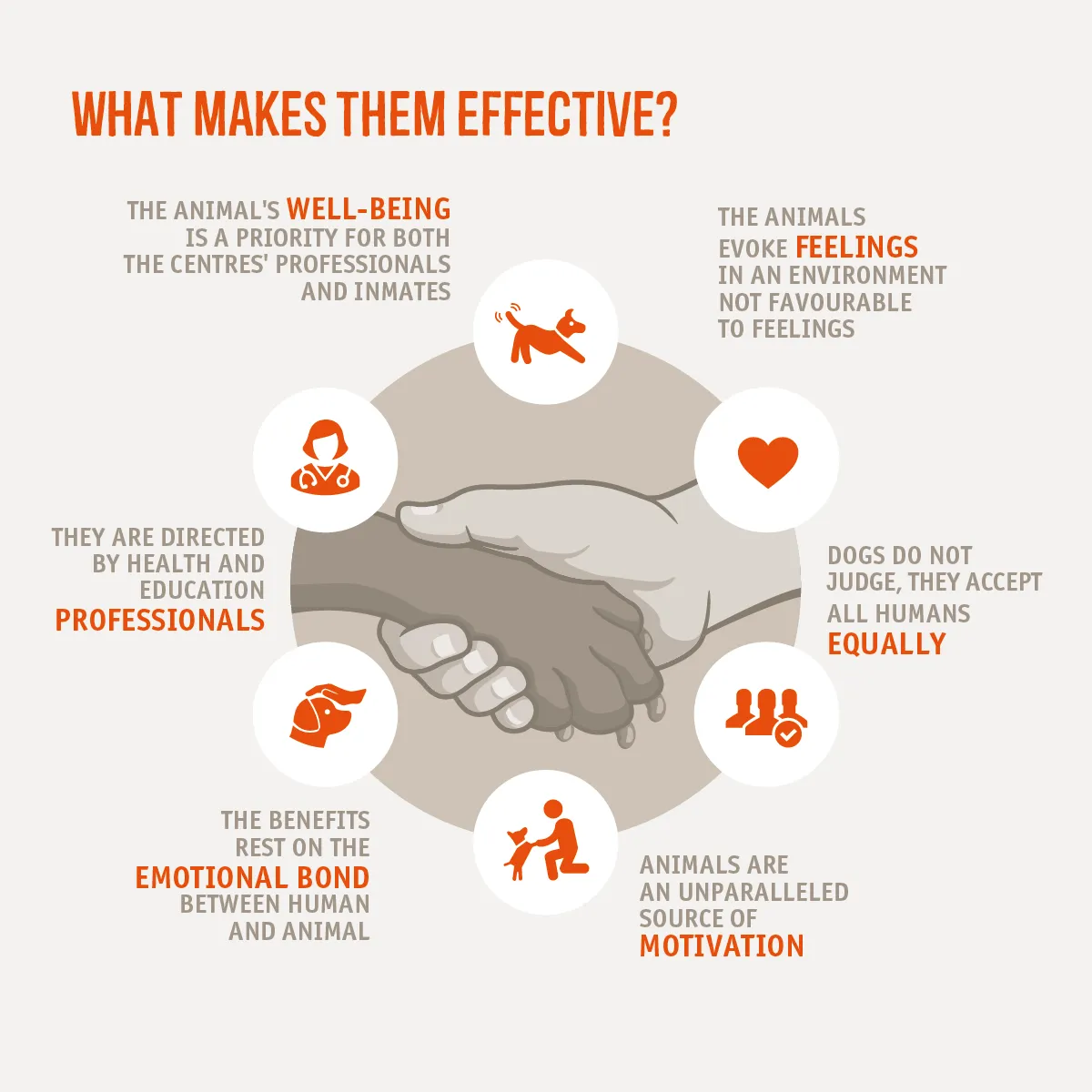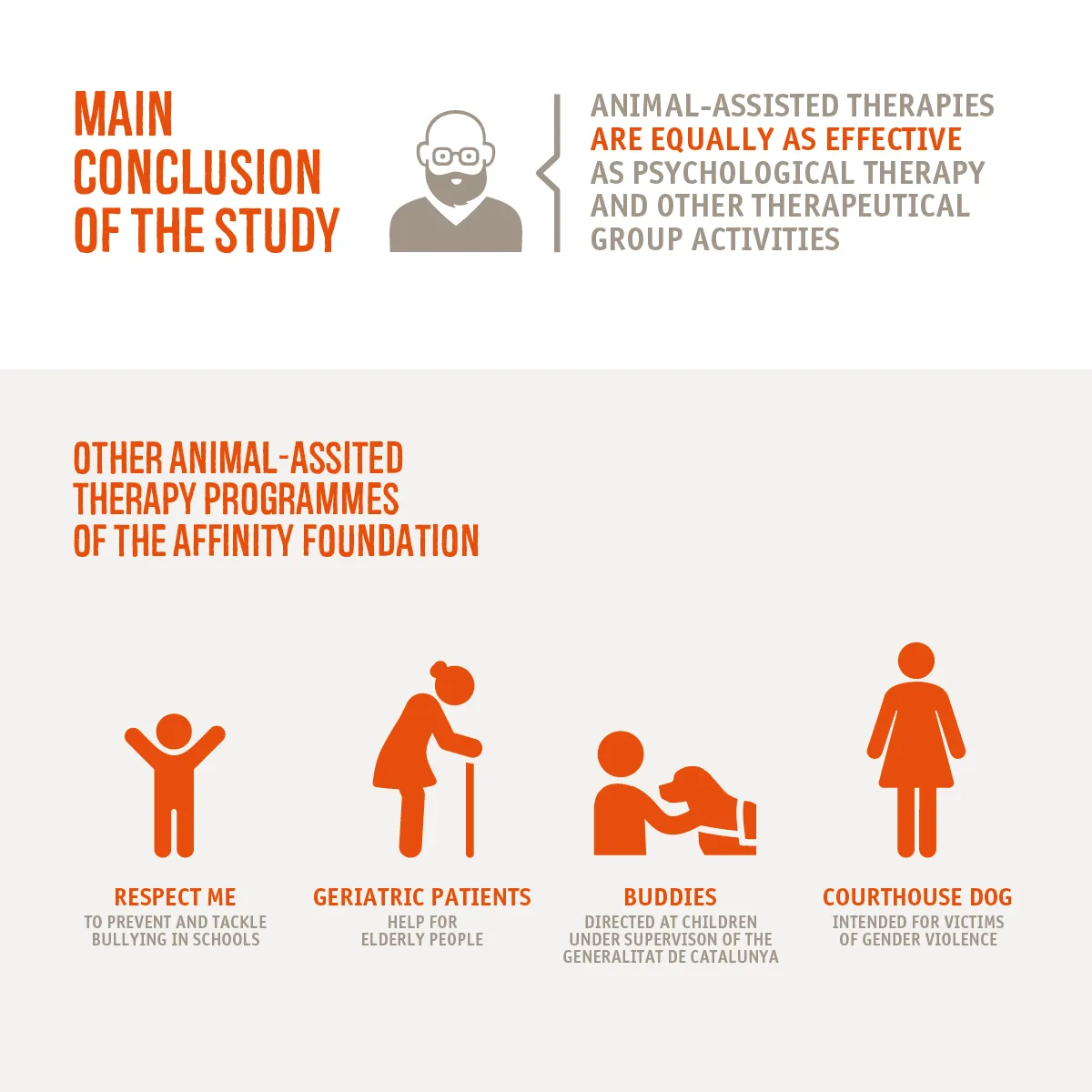Opening Doors Programme
Over 30 years
promoting therapies in prisons
9,000
prisoners have participated
23
prisons
Over 50
helper dogs
Why we created this programme
Prison inmates often face psychological and social problems. We set out to reach as many people as possible and to support them with the help of therapy dogs.
The Affinity Foundation Chair for Animals and Health at the UAB produced a technical report that scientifically validated the positive effects of improved behaviour and reduced anxiety among prisoners.
The conclusions of the study are clear: animal-assisted therapies are as effective as psychological therapy and other group therapeutic activities.
Infographic on the study of dog-assisted therapies in prisons
Study carried out by the Affinity Foundation Chair for Animals and Health at the Autonomous University of Barcelona and the Prison Directorate.
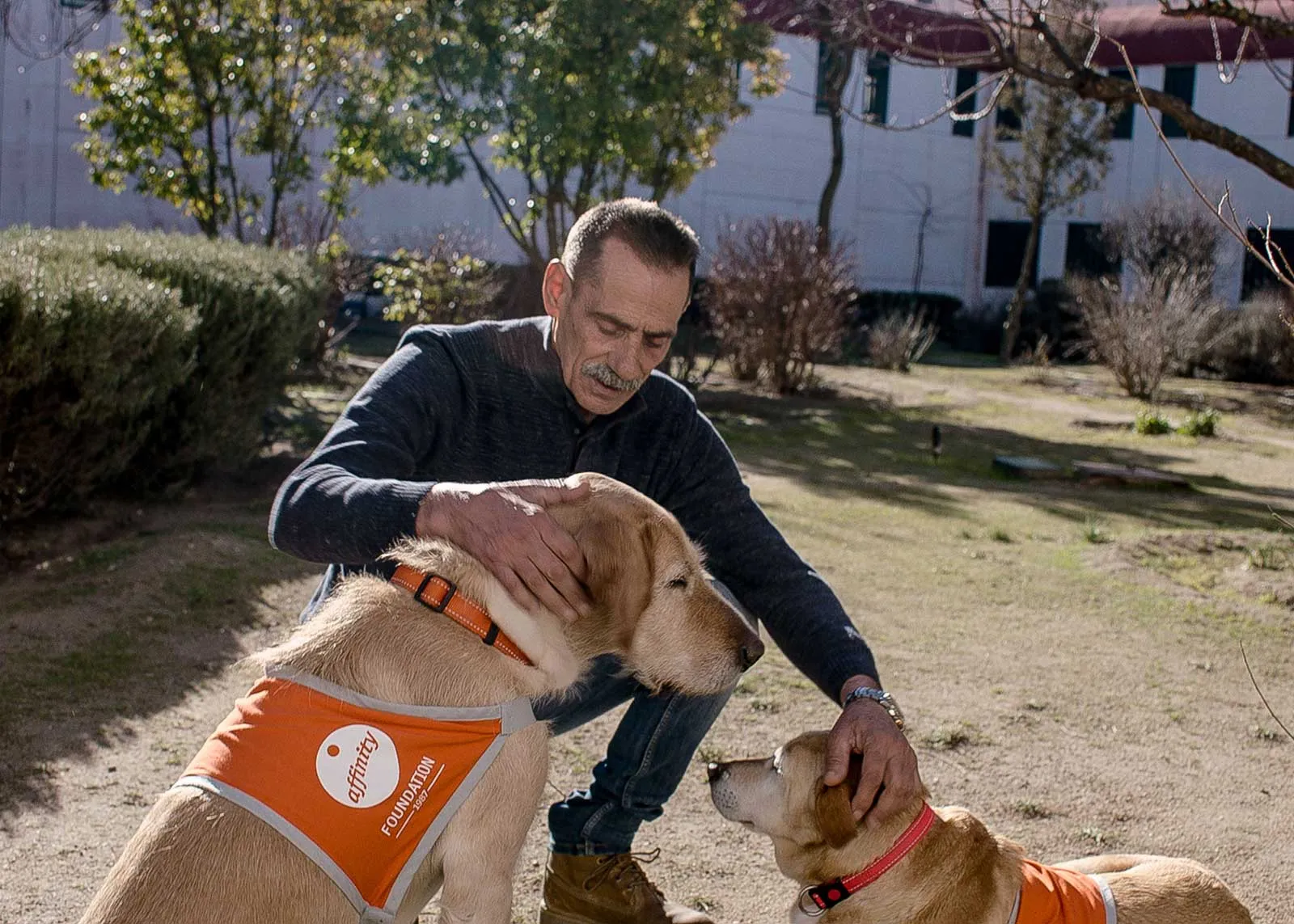
How the programme works
¿Cómo ayuda el contacto con los animales a los internos?

They are responsible for their care
They take them for walks and make sure they get exercise appropriate to their age
They feed them and are responsible for the animal’s hygiene, as well as their space
They control their weight and health following veterinary instructions
They train them using positive reinforcement following the instructions of a dog trainer
They take them to other cells so that other inmates can benefit from contact with them
Are animal therapies effective?

Dogs do not judge, they accept everyone equally, regardless of the crime
Animals are a source of motivation and joy in a harsh environment
The benefits result from the emotional bond
Animals generate feelings in an environment that is not generally disposed to them
Animals provide a safe space to work on emotional aspects
They are led by health and education professionals
Animal welfare is a priority for professionals and inmates
